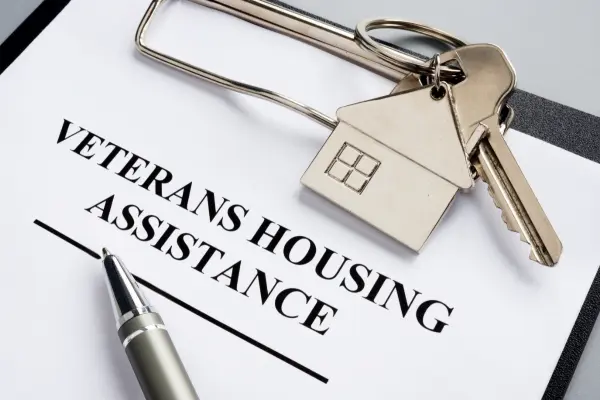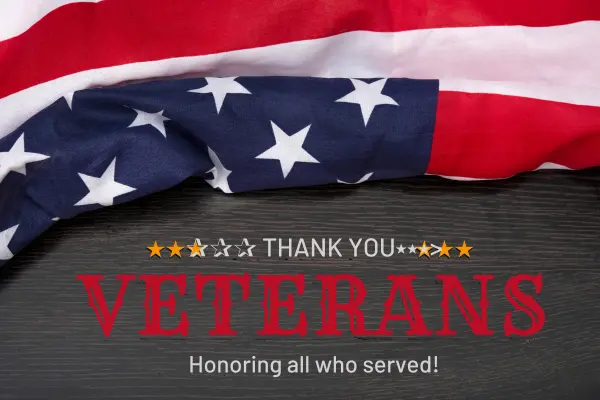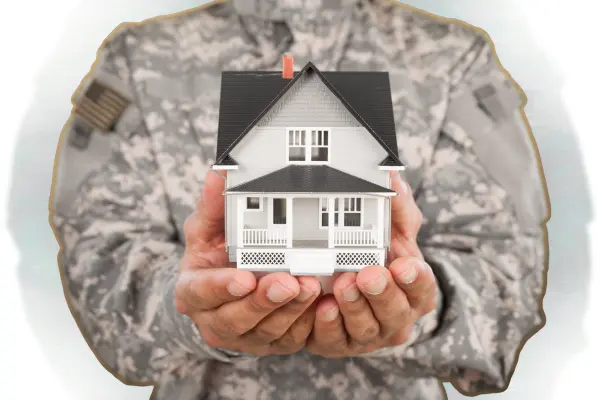Housing for veterans with felonies might seem quite difficult to secure, but with the right programs, and VA housing assistance, it is possible to obtain stable housing. This is due to their criminal history, they may be denied access to traditional housing options and may have difficulty finding landlords willing to rent to them. This situation can lead to homelessness, joblessness, lack of security, poverty, and other negative consequences.
Housing is a fundamental human need that is essential for health, well-being, and economic security. For veterans, housing provides a stable foundation from which they can access healthcare, education, employment, and other essential services. Stable housing can also help veterans to rebuild their lives, reconnect with their families, and contribute to their communities.
Housing For Veterans With Felonies
Eligibility For VA Housing With Felonies
Incarceration can significantly impact an individual’s Veterans Affairs (VA) benefits eligibility. The VA provides a wide range of benefits to eligible veterans, including disability compensation, healthcare, and education assistance. However, certain convictions and periods of incarceration can affect a veteran’s entitlement to these benefits.
Felony Convictions
A felony conviction can result in the forfeiture of VA benefits if the offense was related to national security or involved the use of a firearm. Forfeiture is a permanent loss of benefits and is not subject to reinstatement.
Misdemeanor Convictions
While misdemeanor convictions generally do not result in forfeiture of VA benefits, they can affect eligibility for certain programs. For example, veterans with multiple misdemeanor convictions may be ineligible for VA housing assistance.
Length Of Incarceration
The length of incarceration can also impact VA benefits. Veterans who are incarcerated for more than six months may experience a reduction or suspension of their disability compensation benefits. Healthcare benefits may also be affected if the veteran is incarcerated in a federal prison.
Other Factors
In addition to convictions and incarceration, other factors can also affect VA benefits eligibility. These include:
- The type of discharge from military service
- The veteran’s age and disability status
- The veteran’s income and assets
Reinstating Benefits
In some cases, veterans may be able to have their VA benefits reinstated after they are released from incarceration. However, this requires a formal application and review process. Veterans should contact their local VA office for more information about reinstating benefits.
VA Programs For Justice-Involved Veterans(Felony Convictions)

Veterans who have been convicted of felonies face unique challenges when seeking healthcare and other benefits from the Department of Veterans Affairs (VA). While felony convictions can affect eligibility for certain programs, the VA offers a range of services specifically designed to support justice-involved veterans.
1 . VA Healthcare For Justice-Involved Veterans
Veterans with felony convictions are eligible for the same VA healthcare services as other veterans, including medical, dental, and mental health care. However, they may face additional barriers to accessing these services due to stigma, transportation issues, or lack of housing. The VA has programs in place to address these barriers, such as outreach programs, mobile health clinics, and transitional housing.
2 . VA Benefits For Justice-Involved Veterans
Felony convictions can affect eligibility for certain VA benefits, such as disability compensation, education benefits, and home loans. However, there are exceptions to these rules, and many justice-involved veterans are still eligible for some benefits. The VA has a dedicated team of benefits counselors who can help veterans understand their eligibility and apply for benefits.
3 . VA Programs For Incarcerated Veterans
The VA provides a range of services to incarcerated veterans, including healthcare, mental health counseling, and case management. These services help veterans prepare for reentry into the community and reduce their risk of recidivism. The VA also works with prison systems to establish partnerships and provide access to VA programs.
4 . VA Support For Reentry
After release from prison, justice-involved veterans often face significant challenges in reintegrating into society. The VA offers a range of reentry programs to help veterans find housing, employment, and other support services. These programs are designed to help veterans rebuild their lives and avoid recidivism.
The VA recognizes the unique challenges faced by justice-involved veterans and provides a range of programs and services to support them. By accessing these services, veterans can improve their health, access benefits, and successfully reintegrate into the community after incarceration.
Halfway Houses For Veterans With Felonies
Halfway houses provide a structured and supportive environment for individuals transitioning from prison or jail back into the community. These facilities offer a range of services, including housing, counseling, job training, and support groups, to help veterans reintegrate into society successfully.
For veterans with felony convictions, halfway houses can be a vital resource. Many veterans who have been incarcerated face significant challenges upon release, including homelessness, unemployment, and mental health issues. Halfway houses can provide a safe and stable environment where veterans can begin to address these challenges and rebuild their lives.
Halfway houses also offer a structured environment that can help veterans stay on track with their recovery. Many veterans who have been incarcerated have struggled with substance abuse or mental health issues. Halfway houses can provide a drug- and alcohol-free environment, as well as access to counseling and support groups.
In addition to providing housing and support, halfway houses also offer a sense of community. Many veterans who have been incarcerated feel isolated and alone. Halfway houses can provide a sense of belonging and support that can help veterans rebuild their lives.
Halfway houses are not a one-size-fits-all solution but can be a valuable resource for veterans with felony convictions. These facilities can provide a safe and supportive environment where veterans can begin to address their challenges and rebuild their lives.
Section 8 For Veterans With Felonies
Section 8 is a federal housing assistance program that provides rental subsidies to low-income households. Veterans with criminal records are eligible for Section 8 housing, but they may face some challenges in obtaining it.
One of the challenges that veterans with felonies may face is the fact that landlords are not required to rent to them. This means that veterans with felonies may have to search harder to find a landlord who is willing to rent to them.
Another challenge that veterans with felonies may face is the fact that they may have to disclose their criminal history to potential landlords. This can be a difficult decision, as veterans may be concerned about being discriminated against. However, it is important to be honest about your criminal history, as it can help you avoid problems down the road.
If you are a veteran with a felony and you are having trouble finding housing, there are several resources available to help you. You can contact your local Veterans Affairs office or you can search for housing assistance programs in your area. There are also several non-profit organizations that provide housing assistance to veterans.
With the right help, veterans with felony convictions can find affordable housing. Section 8 housing is a great option for veterans who are struggling to make ends meet.
Conclusion

The provision of adequate and affordable housing for ex-members of the armed forces who have felony convictions poses a multifaceted challenge that requires comprehensive solutions. While the stigma associated with a criminal record can create barriers to obtaining housing, it is crucial to recognize the unique circumstances faced by veterans and the need for support and reintegration services.
Programs that provide transitional housing, supportive housing, and financial assistance can play a vital role in helping ex-felon veterans secure stable and safe living arrangements. These programs should be tailored to the specific needs of ex-felons, such as providing case management, job training, and mental health services.
The criminal justice system must strive to reduce the collateral consequences of a felony conviction, particularly concerning housing. This can be achieved through expungement or sealing of criminal records, or by enacting ‘ban the box’ policies that prohibit employers and landlords from inquiring about criminal history on job or housing applications.
Collaboration between government agencies, non-profit organizations, and the private sector is essential to create a comprehensive housing support system for ex-felon veterans. By addressing the root causes of homelessness and recidivism, we can provide these individuals with the opportunity to rebuild their lives and contribute positively to society.
Therefore, ensuring that ex-members of the armed forces with felony convictions have access to safe and affordable housing is not only a matter of justice but also a matter of national security. By investing in their well-being, we are investing in a stronger and more resilient nation.

